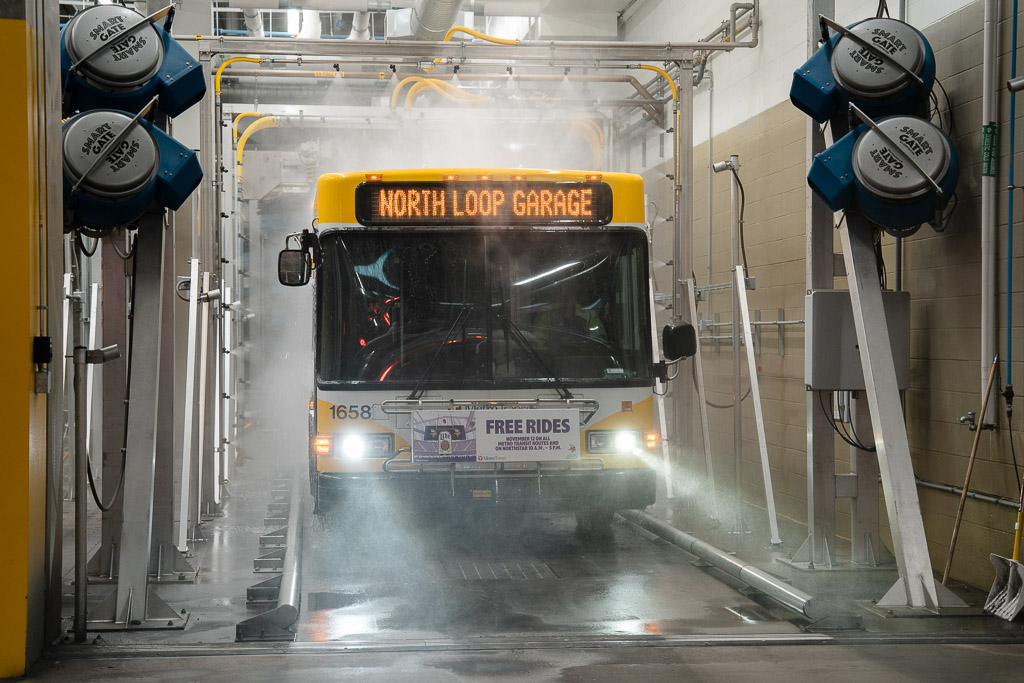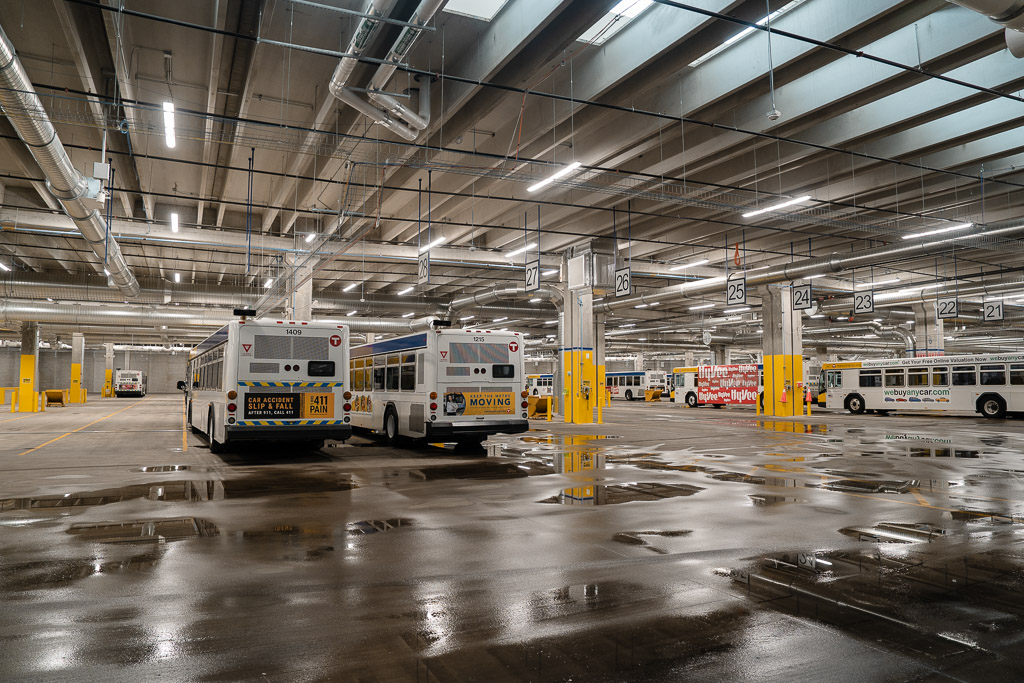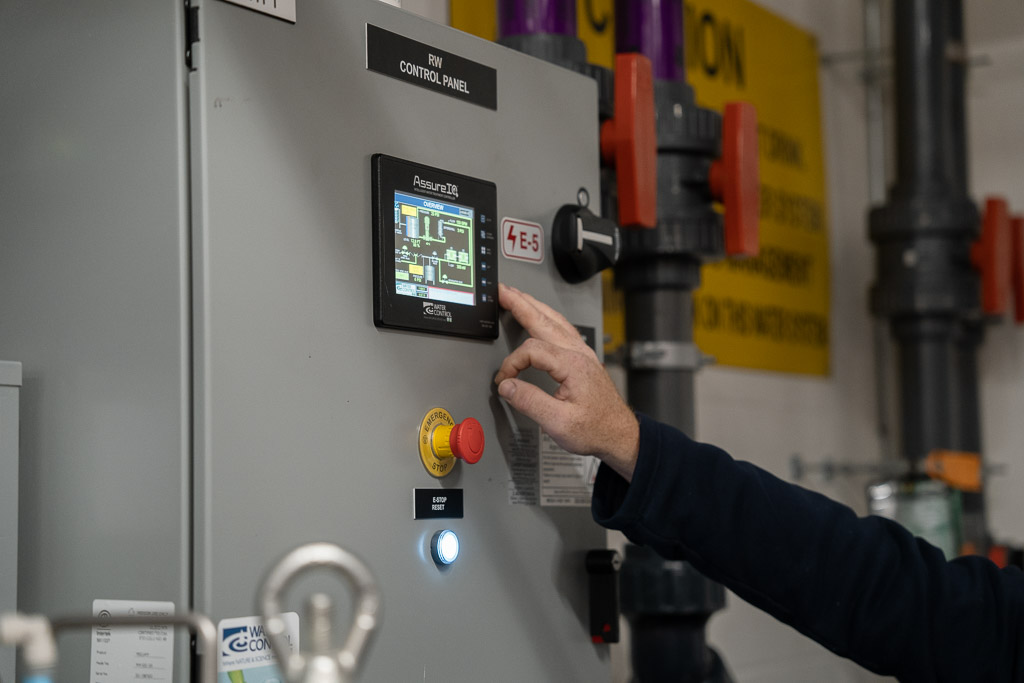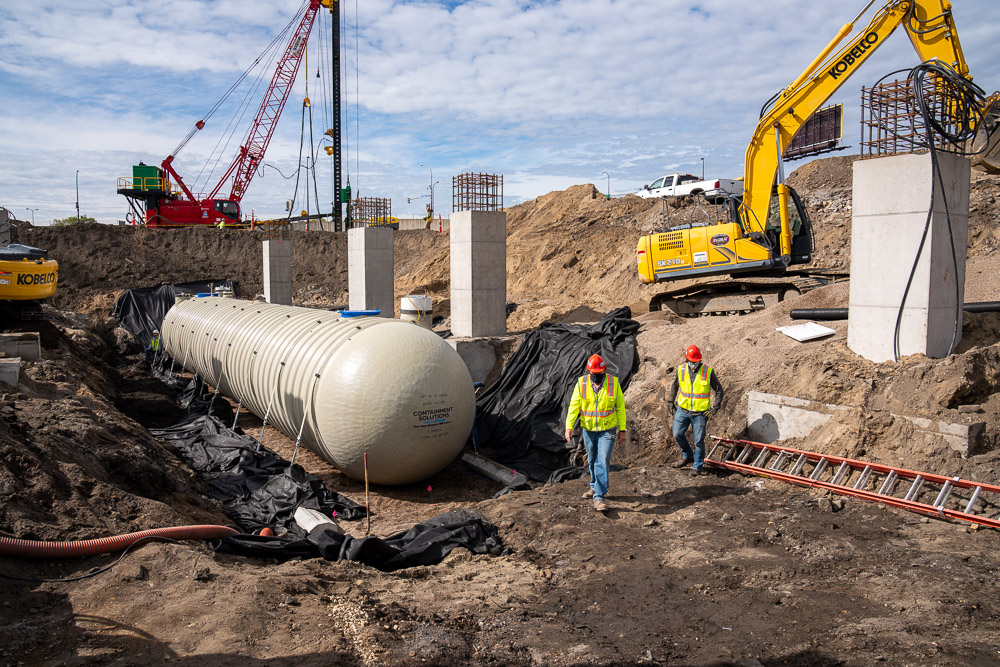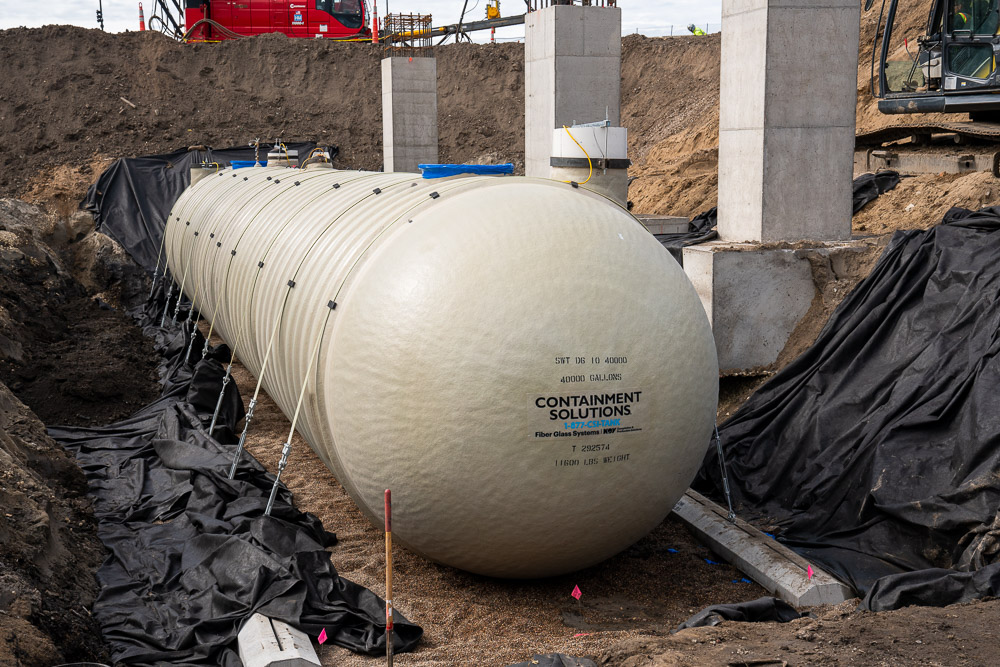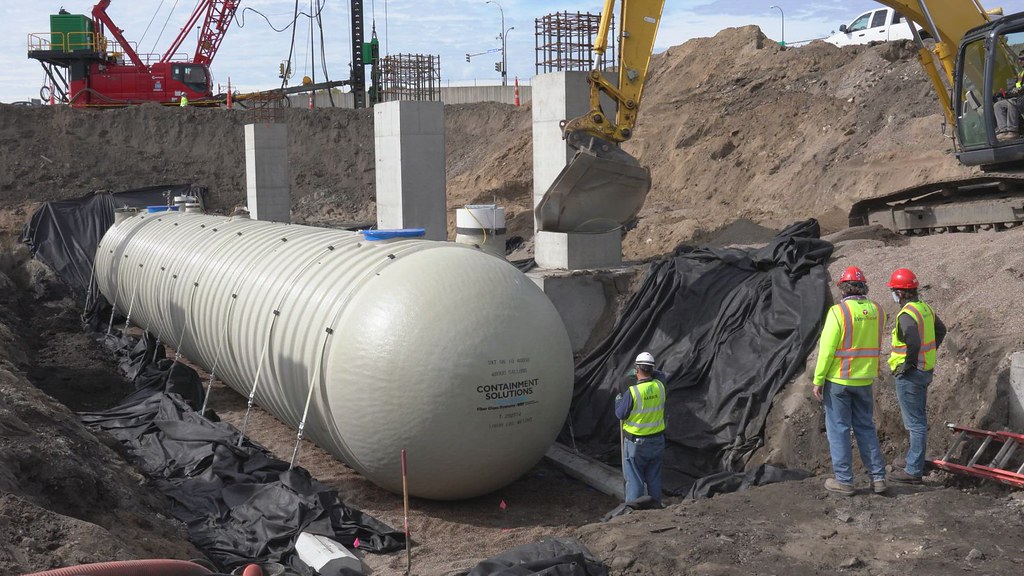Metro Transit Bus Garage Stormwater Reuse
A stormwater reuse system captures and treats roof runoff from Metro Transit's North Loop Garage so it can be used for washing buses.
Overview
Project Details
City: Minneapolis
Type: Capital Project Grant
Status: Completed
Timeline: 2019-2023
MWMO Funding: $400,000
Partners: Metro Transit
Contractors (Reuse System): HNTB, LHB, Hallberg Engineering, Adolfson & Peterson, Knutson Construction, Bolander, Harris Companies
Nancy Stowe
Projects and Outreach Director
612-746-4978
Email Nancy Stowe
View Bio
The MWMO worked with Metro Transit to design and implement a stormwater reuse system that will be used for washing buses at a new bus operations and maintenance facility in North Minneapolis. The system utilizes a large underground cistern and multiple filtration methods to capture and treat runoff from the building’s roof. This will allow facility staff to conserve up to 13,000 gallons of potable water each day. The facility is currently under construction and is expected to open in late 2022.
Metro Transit identified sustainability and resilience as priorities for their new bus garage facility, located at an 11-acre site at the western edge of the North Loop neighborhood (northwest of Target Field). Known as the Minneapolis Bus Garage, the site will serve approximately 200 buses. New maintenance bays, fueling areas, administrative offices, and employee parking provided by the facility will support Metro Transit’s growing ridership demand and future service expansion. The campus location is adjacent to the existing Heywood Garage, which opened in 1984, and additional support services, such as the main offices and Metro Transit Control Center.
The MWMO collaborated with Metro Transit for three years to design a system that could offset its use of potable water with recycled stormwater runoff. The system is built around a 40,000-gallon underground rainwater storage tank, which will collect water from the building’s 350,000-square-foot roof. It will take approximately 0.22 inches of rainfall to fill up the tank (if empty) at the beginning of a rainfall event. A robust filtration system will ensure that the reused stormwater does not damage the buses. System components include a fiberglass storage tank, high-flow membrane filters (for filtering out fine sediment), ozone filters (oxidizing disinfectant for maintaining water quality held in storage), and piping from the ozone filter to the bus wash. In the event that the tank is empty, facility staff can switch to using potable municipal water. To maximize long-term tank performance, all excavated soil for the underground reuse system was replaced with approved backfill material consisting of clean pea gravel aggregate. Metro Transit is responsible for the operation and maintenance of the system.
To meet the city’s stormwater management requirements, a dry pond and sump catch basins were included in the design. The stormwater harvesting goes above and beyond city requirements and helps offset continuous potable water demand. In addition to the stormwater reuse system, the garage was designed with other sustainability-minded features, including high energy efficiency (targeting net-zero energy), a solar thermal wall, a geothermal field for heating and cooling of administrative spaces, a future rooftop solar array, and electric bus readiness.
